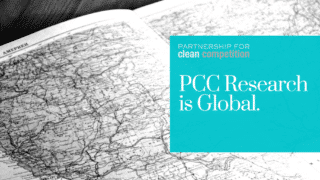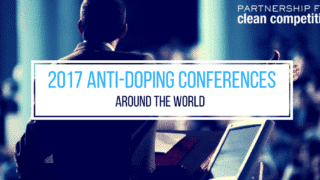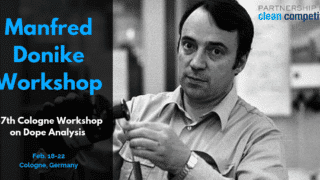As the world leader in anti-doping research funding, the PCC’s mission is driven by a global movement of scientists pursuing a single, noble goal: providing scientific data to protect the integrity of sport. The research we fund is conducted by scientists from diverse nations and it impacts athletes around the world. The PCC believes that in the scientific community, diversity makes a difference because it ensures various viewpoints are taken into account.
PCC working groups, in particular, combine the talents of researchers from several nations. This combination of knowledge exemplifies how an emphasis on common goals and international scientific standards can bridge divides and produce solutions for large-scale scientific challenges.
The bi-annual PCC conference, held in New York City, is another platform that strengthens international scientific ties through dialogue. The conference brings together scientists from all over the world to teach each other, collaborate, and share their views on tackling anti-doping concerns which transcend individual countries or sport. The next PCC conference will be in April 2017.
While working groups and the conference are vital to the mission of the PCC, there is nothing more critical than the grants program. In 2014 and 2015, grant applications were received from 15 different countries spanning four continents, including Australia, Austria, Belgium, Canada, Denmark, France, Germany, Ireland, Italy, South Africa, Spain, Sweden, Switzerland, the United Kingdom, and the United States.

Nearly half of the projects funded by the PCC (44%) were conducted by researchers from outside of North America. Not including North America, multiple projects were funded in Australia (5), Belgium (3), Denmark (2), and Austria (2). In 2016, the PCC hopes to see applications from additional nations to further enhance the anti-doping thought leadership currently amassed in our network.

While the PCC’s emphasis is on funding high quality scientific anti-doping research regardless of geographical point of origin, we encourage a global effort in the fight for clean sport. A consortium of scientists from varying backgrounds may investigate different questions, or approach similar challenges in different ways. Thus, a diverse scientific community is most likely to balance bias, while advancing the field of anti-doping research.
Efforts to penetrate the scientific landscapes of more European, Asian, South American, and African nations are currently underway and include social media outreach, a quarterly newsletter with current funding opportunities distributed to a 1,200 person, global distribution list, and direct outreach to top international research universities. However, the value of word of mouth cannot be underestimated, and efforts can be furthered tremendously by current stakeholders sharing their knowledge about our available funding programs.
The more applications the PCC receives, the more potential to enhance anti-doping knowledge and improve upon testing methods and detection windows. We urge scientists from around the world – concentrating in any discipline – to expand their scientific and geographical reach by submitting their anti-doping research project by July 1, 2016 for consideration during our next funding cycle.




